Is the Base co-founder launching a token this time reliable?
How should we view this celebrity token from Base?
Today, Base co-founder Jesse Pollak announced that he will soon launch his personal creator token, jesse, on the Base App. The release is scheduled for November 20th at 9:00 AM Pacific Standard Time (1:00 AM on November 21st, UTC+8). The jesse token will be launched from his Base App account, jesse.base.eth.

Thanks to this news, Zora, which supports creator tokens for Base App, surged about 8% during the day.
Why does Jesse want to launch his personal token? On X, he explained, "Content coins track short-term attention, creator coins track long-term content value. The combination of the two forms a flywheel effect, returning ownership, control, and revenue rights to creators and their fans. With $jesse, my flywheel effect will be complete."
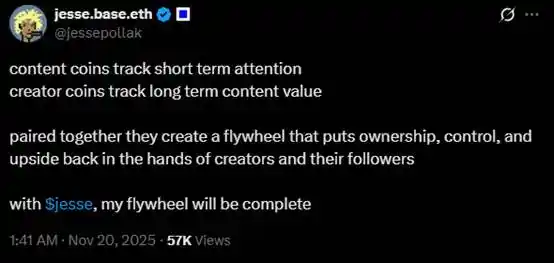
But in reality, this looks a lot like personally stepping in to advertise for Base App. Base App is very much like Coinbase's own "Alipay": it serves as the application hub for the Base network, includes a social network with a creator economy mechanism, allows for token trading and transfers, and even features a "Yu'e Bao"—USDC in Base App can enjoy an annualized yield of up to 3.85%.
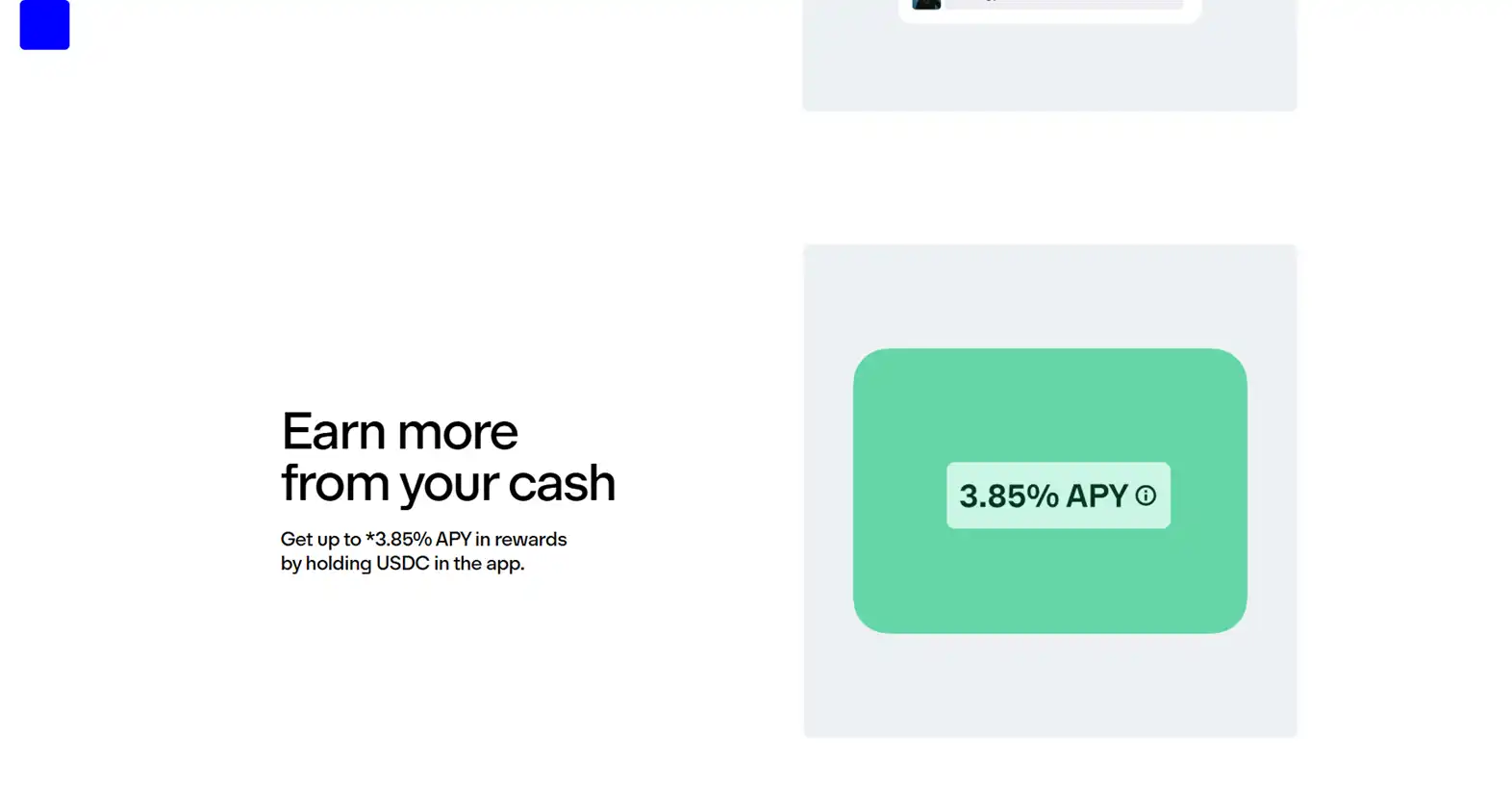
Ironically, Jesse's explanation for issuing his personal token was in response to this tweet:
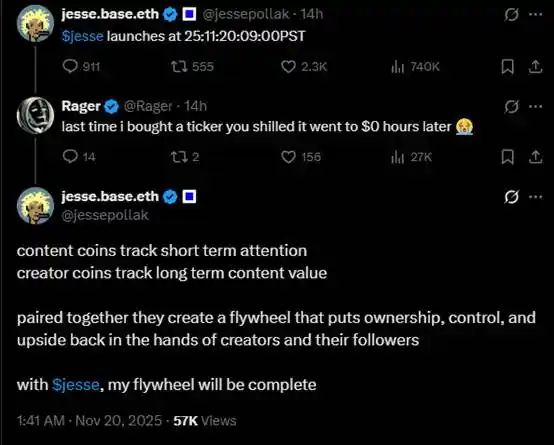
"Last time I bought a token you promoted, it went to zero within hours."
Among the "well-known" figures in the crypto community, Jesse does not leave a good impression on retail investors—he is notorious for "calling out coins and then forgetting about them." But from the perspective of a Base co-founder seeking attention and growth for his own chain, his actions are quite understandable.
On April 17th, the official Base Twitter account posted "Base is for everyone" with an accompanying image, and left a token link launched on Zora under the tweet.
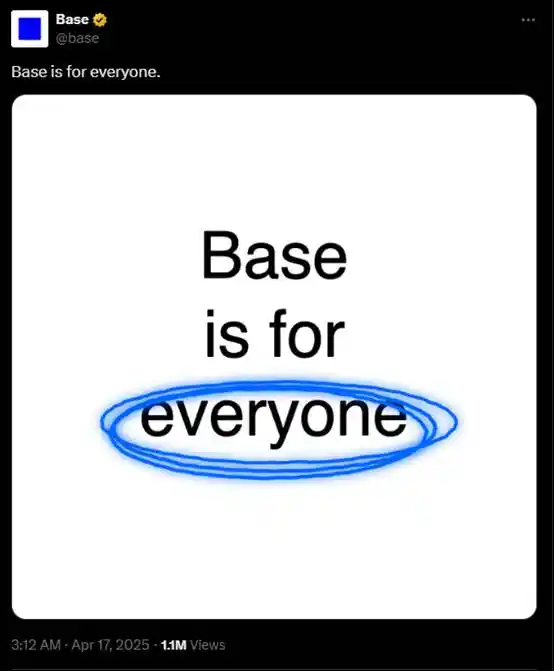
The token's market cap instantly soared to $17 million, then plummeted 90% within five minutes. In response, a Base spokesperson told The Block via email that Base did not launch "Base is for everyone"—it was automatically minted by the Zora platform, and Base had only posted on the platform. The token is not an official Base token, nor did Base officially sell it.
In fact, about an hour before the official Base tweet, Jesse had minted a token on Zora based on his own tweet about the difference between content coins and meme coins. During those days, he was frantically sharing his views on content coins, and a week later, Zora launched its own token.

An interesting side note is that at the time, pump.fun founder alon jumped out to claim that the so-called tokenization of everything was harmful to the market, especially for influential people, as issuing tokens means taking on corresponding responsibilities—an unwritten but tacit rule on-chain.
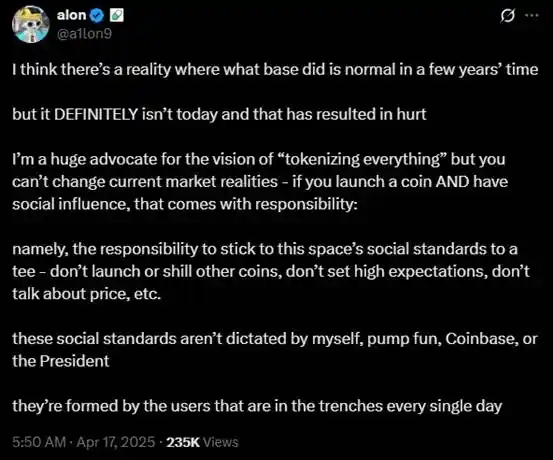
Now, alon, once seen as a righteous figure, is constantly being asked "Where's your airdrop?" from the trenches, while Jesse is finally stepping up to issue a token and take responsibility. The crypto world is indeed magical.
Besides minting a bunch of content coins related to his own tweets on Zora, Jesse also buys tokens, for example:
- On July 18, 2024, he spent 0.3 ETH to buy the Base ecosystem meme coin MIGGLES, which later reached a market cap of about $120 million at its peak, and currently has a market cap of about $8.8 million.
- On November 21, 2024, he spent 0.333 ETH to buy the Base ecosystem meme token ANON, deployed by clanker AI on farcaster, which later reached a peak market cap of about $65 million, and currently has a market cap of about $970,000.
These can be understood as his support for tokens within his own ecosystem. Some time ago, in order to attract meme coins from Solana to bridge to Base, he not only had an abstract showdown with Chillhouse, but also personally bought some meme coins on Solana.
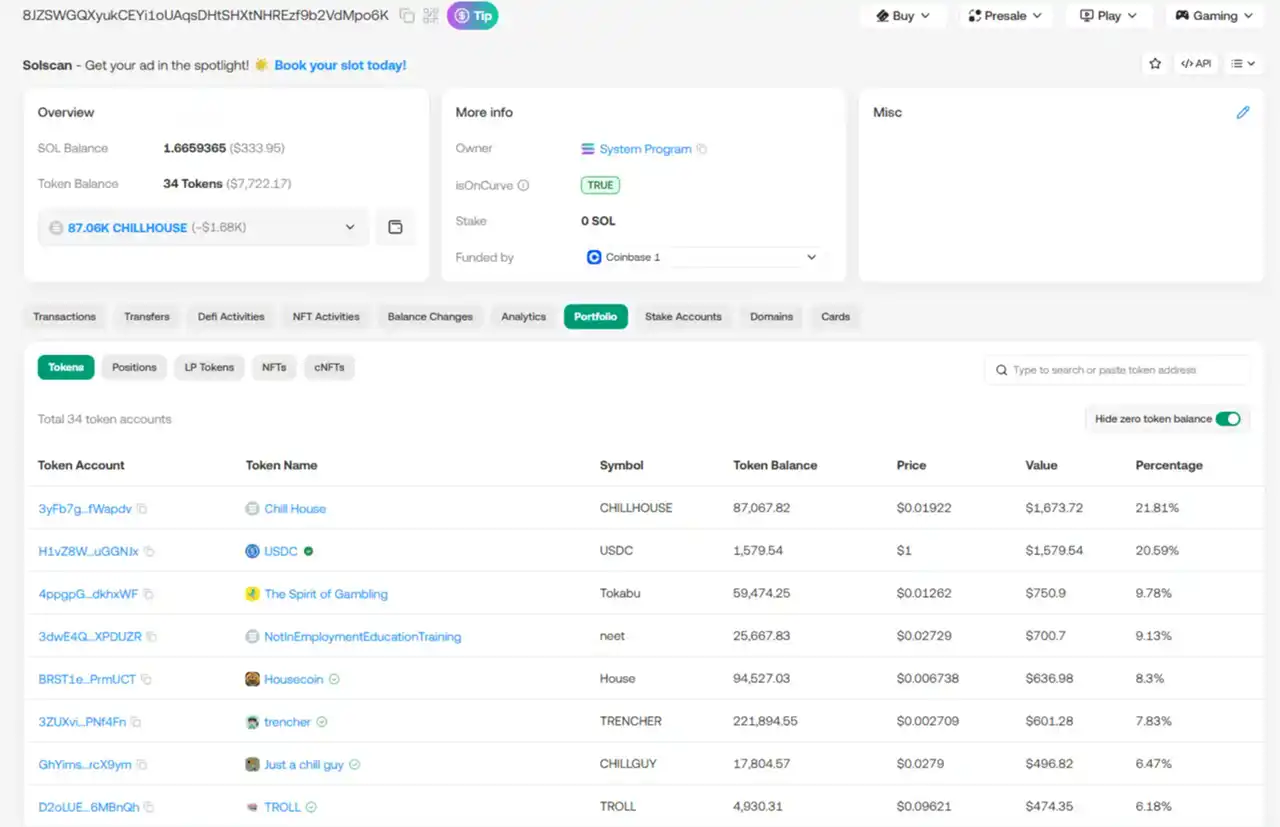
So, returning to Jesse's personal token launch, the visions he paints should not be taken at face value by retail investors. As he once replied to alon's comment, these things are his "attempts to make a bigger pie and try new things." On one hand, as the head of Base, this is quite reasonable; on the other, it also shows his attitude toward issuing tokens: "Since it's an experiment, it could fail."
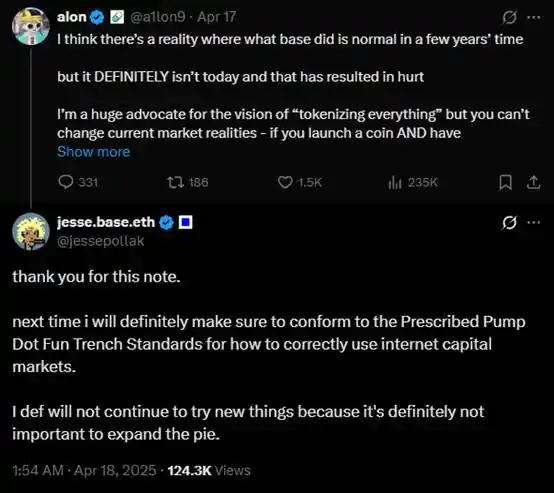
For retail investors, this may sound ruthless, but it's not entirely unreasonable. Even in the more mature stock market, there's always a sign at the entrance: "The stock market is risky, invest with caution." No company will always strive to push up its stock price just to "be fair to retail investors." People often say many meme coins are "conspiracies," but if information asymmetry is enough to be called a "conspiracy," then perhaps all meme coins are "conspiracies," because there are always various motives behind price pumps.
This may be a difference between East and West, or more accurately, a difference in interests between retail investors and project teams. For many "well-known" foreign crypto figures, launching a token doesn't have such grand goals or heavy moral burdens—if it succeeds, it's luck or skill; if it fails, it fails. Life has many failures, and launching a token is just one of them. Moreover, even well-intentioned devs or crypto celebrities don't necessarily understand the meme market better than retail investors.
For example, recently, the privacy-themed meme coin mec on Solana was born from a joke by Helius CEO @0xMert_ during a livestream and deployed by Synthetix and Infinex founder @kaiynne. At the time, @kaiynne said that mec, his third meme coin, was his "redemption work." But all he could do was use the creator income generated by the token for buybacks, and then... nothing more.

It is unrealistic to pin hopes on celebrities to always pump coins for the sake of their reputation.
Will Jesse take it seriously this time? Maybe. The token might also skyrocket in the short term after launch, but this possibility should not be the basis for heavy investment. If you try out Base App and buy a small amount as an interaction in hopes of a future Base token airdrop, while keeping expectations for this new token low, it would be a more flexible strategy.
Disclaimer: The content of this article solely reflects the author's opinion and does not represent the platform in any capacity. This article is not intended to serve as a reference for making investment decisions.
You may also like
Lumen’s 46% jump in 2025 carries into 2026 on AI bets
‘No Motivation to Hold’: Software Shares Plunge Amid Concerns Over Latest AI Technology
'A widening range of opportunities': Wall Street anticipates stock market growth extending past the tech sector
Where Meta's ambitions for the metaverse fell short
